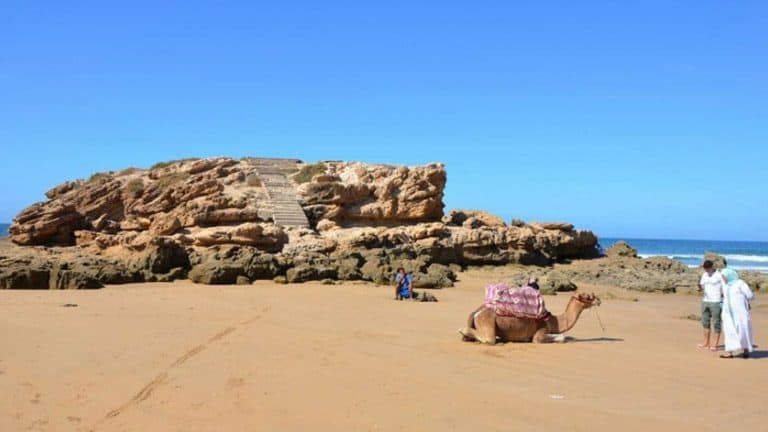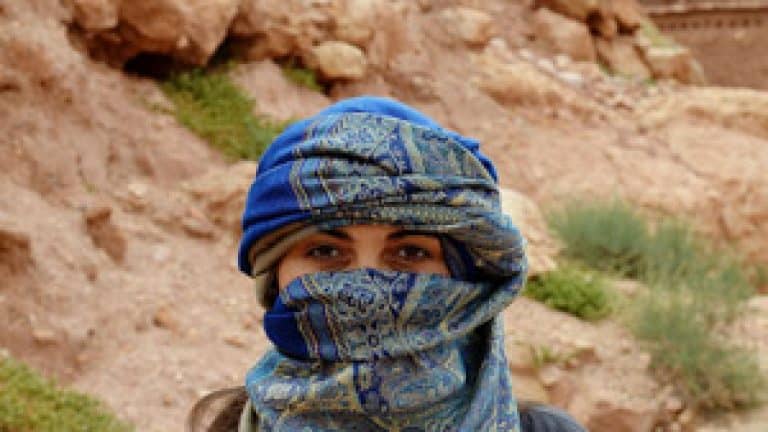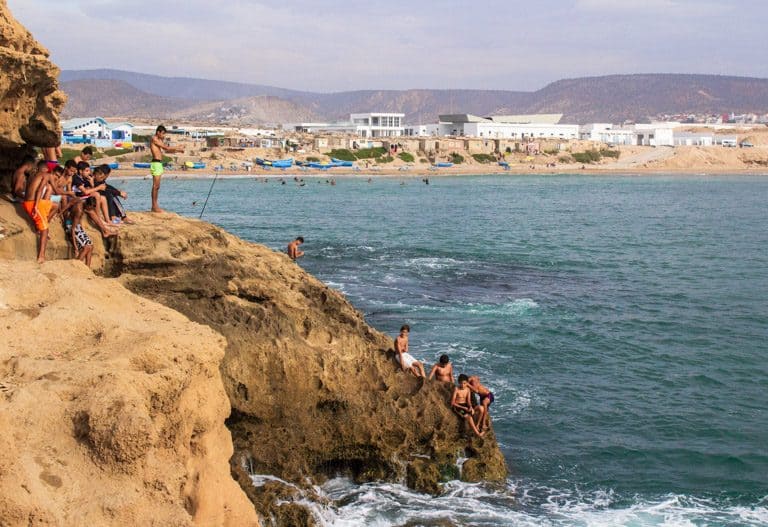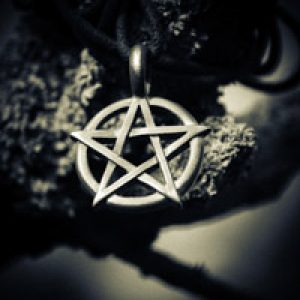The seven waves of Devil’s Rock

1. The legend of Devil’s Rock
With the help of others, the girl goes inside the hole. She should be held tightly by the shoulders to prevent slips under the strength of the waves.

This is a simple yet dangerous ritual. Waves crash on the rock, and she gets splashed through the hole.
She should not speak nor turn around. In the coming year, she is supposed to find a husband, happiness and fertility in her marital life.
To complete the ritual, the girl should immerse in seawater, and then brush her hair with a new comb. With the seventh wave, she Strips off Her Clothes and the comb to repel misfortune and start all over again. Out of discretion, women usually accompany their daughters early in the morning to avoid curious eyes.
This ritual dates back to pagan practices (Ancient religious beliefs). With the coming of Islam, less and less women are stripping off their clothes and the ritual stops at the rock.

2. Number Seven
Why seven waves? No one seems to know why. Women say they simply do what their ancestors used to, but they can’t explain it.
Well, if we do a little research, we realize that from the very beginnings of our recorded history, the number Seven has always had a strong significance.
The Babylonians divided weeks into seven days. The Jewish menorah holds seven candles. For Christians, God created the world in seven days.
Muslims are to go around the Kaaba seven times.

The number Seven has always fascinated people. For many civilisations, it denotes completeness or perfection, creation and spiritual purification.
After the seven waves, these girls are completed, purified and newly created. They are ready for marital life.
3. The Moussem of Imourane
Every year, at the beginning of September, and for three days, a traditional moussem takes place at devil’s rock beach (Called Imourane among locals). Tents are set up along the beach to host amusement activities, a marketplace and people coming from all over the country. It also brings girls who have heard about the magical powers of the rock. The highlight of the celebration is the famous “Tbourida”.
For those who don’t know, a Moussem is an annual gathering that has economic, cultural and social functions. The origin of Imourane’s moussem seems to be closely linked to the fights against the Portuguese occupier. For many years the tribes of Idaoutanane have been celebrating the defeats of the Portuguese between 1505 and 1506. That is why “Tbourida” (Also called Fantasia) marks the end of this event.
And what is “Tbourida” again?
Tbourida consists of a group of knights representing the original fighters.

Dressed in traditional clothes, they ride decorated horses, and in one line, they gallop as fast as they can for around 200 meters before they fire into the sky using old muskets.
4. The origin of the word Imourane
For some, Imourane is an altered form of the word “Amourrane” which means body and soul strength. For others, it is rather “Mourane”, an ancient and rather obscure Amazigh divinity related to love.
But, it is also speculated that it may be originated from a deformation of the name of a member of the Portuguese military «Ben Mirao». Historians believe that Santa Cruz cape (today the city of Agadir) is not the only fortress built by the Portuguese in 1505.
Some historians talk about a second fortress built a few kilometers north. In response to Spanish claims in the Atlantic, Joao Lopes Sequeira decided to build another fortress a few kilometers away from Agadir, which was called “Ben Mirao”. However, this later is soon taken by the “Maures”.
Anyway, there are many inconsistencies among historians regarding the origin of the word Imourane. In the meanwhile, Imourane gathers both surfers and marriage seekers and no one bothers about historical accuracy. The rock remains wrapped in mysteries.
In Tayyu, we have designed a hike for people looking for an easy and short walk, with a wide view right on this rock. The view does evoke a mixture of feelings. When we stare at the rock from the top of the hill, we can almost feel the spirits, the fights, the desperate girls and a mixture of myth and reality.

By Mbarka
– You may also like –




